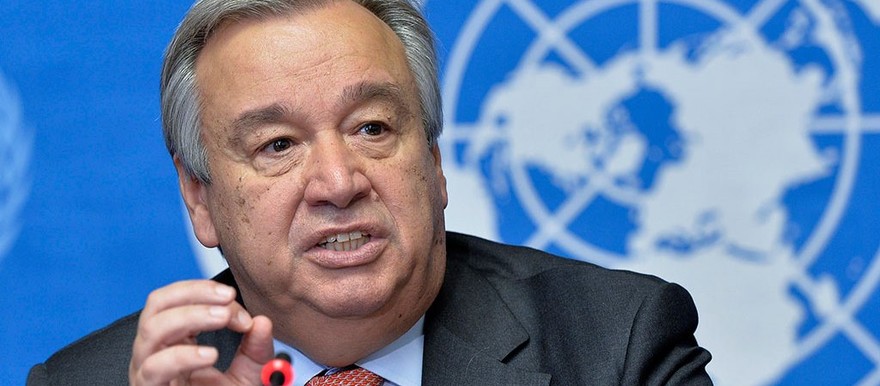UN Secretary-General Antonio Guterres accused South Sudan government of refusing to express any meaningful concern about the plight of 100,000 South Sudanese who are enduring famine, 7.5 million in need of humanitarian assistance and thousands more fleeing due to insecurity.
Guterres told the UN Security Council on Thursday that most often the international community hears denials — a refusal by South Sudan government led by President Kiir to even acknowledge the crisis or to fulfil its responsibilities to end it.
The UN chief further said President Kiir’s statements regarding his intention to hold a national dialogue in the country are not convincing in the context of ongoing hostilities, the absence of consultation with key stakeholders, the systematic curtailment of basic political freedoms, and restrictions on humanitarian access.
Guterres pointed out that the United Nations is working with the African Union and Intergovernmental Authority on Development to reinvigorate the political process and to resolve long-standing inter-communal disputes in South Sudan.
“We support both the Chair of the Joint Monitoring and Evaluation Commission, President Festus Mogae, and the African Union High Representative, President Alpha Konaré, in their respective roles,” he said.
He added that the UN continues to work for the deployment of the regional force and restoration of the peace process, but he stressed that “no such force, and no amount of diplomacy, can substitute for the lack of political will among those who govern the country.”
“There is a strong consensus that South Sudanese leaders need to do more to demonstrate their commitment to the well-being of the country’s people, who are among the poorest in the world,” the secretary-general said.
The UN boss urged leaders from countries in the East African regional bloc IGAD who will be meeting in Nairobi in the coming two days and council members to support efforts for achieving an immediate cessation of hostilities, restoring the peace process which means consulting and ensuring representation of the opposition, and ensuring unrestricted humanitarian access.
Photo: UN Secretary General, Antonio Guterres/UN




